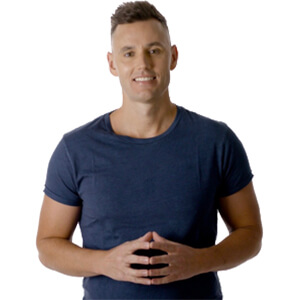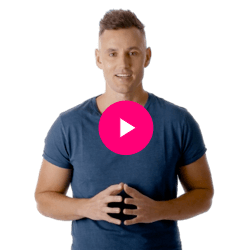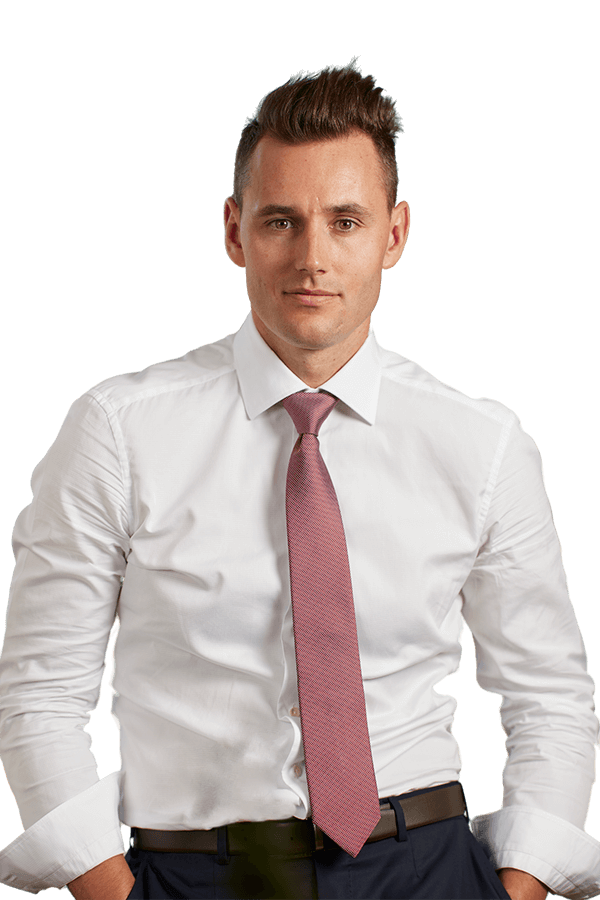ACDF
A type of cervical spinal fusion whereby the incision is made through the front of your neck
Find out more about ACDF or spinal fusion surgery in your neck whereby the incision is made from the front.
ACDF key points
- ACDF or Anterior Cervical Discectomy and Fusion is a type of cervical spinal fusion surgery performed from the front of your neck.
- The biggest and most obvious advantage is that none of the important muscles, bone or ligaments in the back of your neck are affected by the procedure.
- The vast majority of patients that go through the modern ACDF operation are very happy with the result.
ACDF | Spine surgery Brisbane
The surgeon said ACDF. What exactly is that?
ACDF stands for Anterior Cervical Discectomy and Fusion. The full name of the procedure is even longer: “anterior cervical discectomy and fusion, rhizolysis, vertebral body fixation.”
But at the end of the day, fancy names aside, it simply describes spinal fusion in your neck and the surgeon approaches the spine through the front of your neck, as opposed to the back of your neck.
There are complex factors dictating why I would recommend that you have a spinal fusion in the neck, and whether this should be performed through the front or back of your neck.

Spinal surgeon Brisbane
When I see you I will look at all these factors and work out what is best for you, your symptoms and your lifestyle.
ACDF success rate Brisbane
Is it successful?
Yes it is.
It is not like in the past where the surgeries were very big and invasive, with really long recovery times. Modern technology and techniques has vastly improved this operation, making ACDF surgery smaller, and the recovery more rapid.
There are several advantages to approaching the spine through the front of your neck. The biggest and most obvious advantage is that none of the muscles, bone or ligaments in the back of your neck are affected by surgery. In fact, other than a skin cut, no other spinal tissue has to be cut to perform this operation. It is one of the few truly keyhole operations. To learn more about the important, and commonly misunderstood concept of keyhole surgery, check our FAQ page.
As with all types of spinal fusion surgery, you will have a general anaesthetic. Once you are ‘knocked out’ for the whole surgery, I will make an incision at the front of your neck. This may seem a bit weird as there are a lot of very important things that appear to be in the way including arteries (the carotid artery), windpipe (the trachea) and swallowing pipe (the oesophagus).
The reality is it is actually very easy to get to the spine this way, as there is a natural tissue plane that passes safely between all these important structures and keeps them safely out of the way.

Spinal surgeon Brisbane
Once the spine has been easily exposed, the damaged disc is removed and a spacer with small screws is locked in its place. Read more about the important concept of spinal fusion here.
The vast majority of patients that go through the modern ACDF operation are very happy with the result. The goal of surgery is to improve your quality of life, whether that is to just be pain free, or back on the golf course, back in the gym, or be able to walk and move freely again.

Spinal surgeon Brisbane
I will consider all the important factors with you and determine what is best for you and the quality of life that you want to achieve.
ACDF surgery risks
Is it safe?
Yes, in experienced hands ACDF surgery is safe.
Modern technology has made this a safe and effective operation in the 21st century. Engineers from around the world continue to push the limits of this technology to help further improve this operation for your benefit.
With all this in mind the risks I will discuss with you are:
- The operation may not work. You may continue to have the symptoms despite the surgery. This is now quite rare.
- The hardware may fail. Despite all the engineering that goes into the spacers and screws, very rarely these screws and spacers may move, break or fail.
- Bleeding. This rarely causes a problem.
- Nerve damage. Fortunately it is very rare nowadays to get nerve damage from this type of surgery.
- Infection. This is rare in modern surgical practice:
- Antibiotics. When these were invented in the 1940s, surgery was utterly transformed.
- Proper skincare during and after surgery. Healthy skin is a vital barrier to infection: ‘If you look after the skin, the skin will look after you!’
- Shorter surgery. While there is no cut off point, it is well recognised that the more efficient the surgery, and the less time taken, the lower the risk.
- General risk of the anaesthetic like clots in the legs, clots in the lungs, urinary tract infections, skin injuries from being on a bed for a long time, and heart or kidney problems. Modern anaesthetic medicine makes many of these risks very low.
I am committed to getting the best possible result for you and minimising the risks. This also includes keeping regular contact with you during the recovery phase.
There are 2 long term side effects I will talk to you about when I see you:
- Adjacent level disease
- Failure of fusion
The ACDF operation is one of the most common spinal operations performed in Australia, and indeed the world.
You will lie on the operating table so you’re facing the ceiling. You will have a general anaesthetic (and be completely knocked out). An incision is made in the front of the neck, usually the right side. The incision is usually fairly small, and heals very well.
Under the skin, there is a natural tissue plane that can easily be opened up and allows easy and rapid access to the front of the spine. This may come as somewhat of a surprise as intuitively it would seem that there are a lot of complex and important things in the front of the spine like the airway, the carotid artery and oesophagus. However, the plane slides easily and safely between all these structures.
Once the spine has been reached, the target disc is opened and the contents completely removed. This then allows direct access to the nerve, which sits right at the back of the disc in this view, and the nerve is freed up. Then, in the empty space inside the disc a space is placed and fixed into position with small screws.
There are 2-3 options available for any one case, differing in the pros and cons. I will present these to you.
The anterior approach has minimal pain as no muscle is cut during the surgery. Occasionally some neck discomfort is felt for a couple of weeks, and occasionally your swallow will feel a little weird for a week or so (you will prefer soup to steak for about one week).
The scar in this part of your neck actually heals up quite nicely. It will never disappear but often it is hard to see after a few months.
Yes, and I arrange to see you in a week after surgery to remove these.
ACDF recovery time
What can and can't I do afterwards?
You will be in the hospital for about one to four days. This really depends on how fit you are and how many parts of your spine are fused.
Surgery is just one step. Committing to recovery is another one, and a very important step to get the best result. Recovery is like compound interest; if you do the time, you’ll get the best result. If you shortchange yourself and bail out early you will miss out on significant benefits long term.
But this does not mean you will be just resting during the recovery. I will actually encourage you to be as active as possible. It is very important to get your confidence back as soon as possible, and you will be surprised how much you are allowed to do straight after surgery.
I recommend a minimum of 2 weeks off work to get your confidence back and feel comfortable.
Physiotherapy has a very important role postoperatively. It helps reduce the muscle soreness and stiffness from the surgery.
Spinal surgeon Brisbane
What else do I need to know?
If you would like me to assess your condition please contact my team to book an appointment.
Ready to make an appointment?
Ramsay Specialist Centre
Suite 325
Newdegate St
Greenslopes QLD 4120

